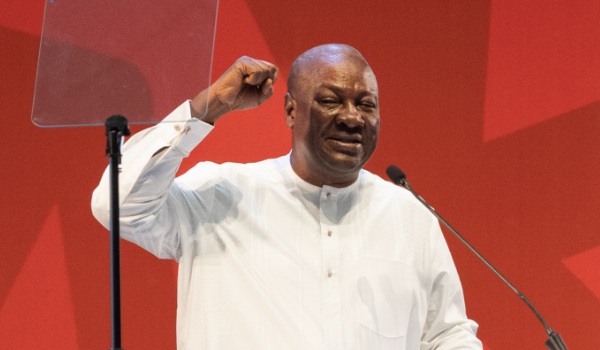
Amnesty International urges President-elect Mahama to address pressing human rights issues
As President-elect John Dramani Mahama is sworn into office today, Amnesty International has called on his new administration to prioritise the promotion and protection of human rights.
The international organisation has outlined key areas requiring urgent attention, including gender equality, the right to peaceful assembly, and the right to a healthy environment.
"President John Mahama and his new government should work to prioritise and tackle key human rights issues head-on over the coming years," said Marceau Sivieude, Amnesty International’s Interim Regional Director for West and Central Africa in a statement.
"This must include addressing barriers to gender equality, protecting women from witchcraft accusations, and reforming laws that repress peaceful protests."
Gender equality and women’s rights
Amnesty International highlighted the need for increased representation of women in political and public life. Although the Affirmative Action Act was signed into law in 2024 to increase women’s participation to 30 percent by 2026 and 50 percent by 2030, women currently make up less than 15 percent of Ghana’s 275-member Parliament.
The appointment of Ghana’s first female Vice-President, Naana Jane Opoku-Agyemang, marks progress. However, Genevieve Partington, Country Director of Amnesty International Ghana, urged the government to take further measures.
"The new government must ensure equal opportunities for women to participate in policymaking and public office at all levels," she said.
End witchcraft accusations and ritual attacks
Amnesty International expressed deep concern over the widespread practice of witchcraft accusations, particularly in the Northern and North-East regions. These accusations have subjected women to violence, abuse, and displacement.
A proposed Criminal Offences (Amendment) Bill to criminalise witchcraft accusations was passed by Parliament in 2023 but was not signed into law by the previous President. Amnesty called on the new government to pass specific legislation to criminalise these acts and implement education campaigns on their harmful effects.
Freedom of peaceful assembly
Amnesty International reported multiple incidents of alleged police repression of peaceful protests in 2024, including arrests and bans under the Public Order Act. Activist Oliver Barker-Vormawor, who organised a September 2024 protest against corruption, stated: "The law requires that police be notified at least five days before a protest. We usually notify them three months ahead, but they still stop demonstrations."
Genevieve Partington called for reforms to the Public Order Act to allow spontaneous protests and urged the government to drop charges against demonstrators who exercised their right to peaceful assembly.
The harmful effects of illegal small-scale mining, or galamsey, were also highlighted. In 2024, Ghana Water Company Ltd. reported that pollution from galamsey had rendered the Pra River unsuitable for water treatment, impacting water supply to Cape Coast and surrounding areas.
"The government must enforce mining laws and uphold its promise to ban illegal mining in forest reserves,"** said Genevieve Partington.
Amnesty International concluded by urging President Mahama to demonstrate a clear commitment to these pressing issues.
"Now is the right time for the President and his government to prioritise human rights and make meaningful changes that benefit everyone in Ghana," said Partington.
The organisation expressed hope that this new administration would usher in a chapter of strengthened human rights protections and governance in Ghana.
